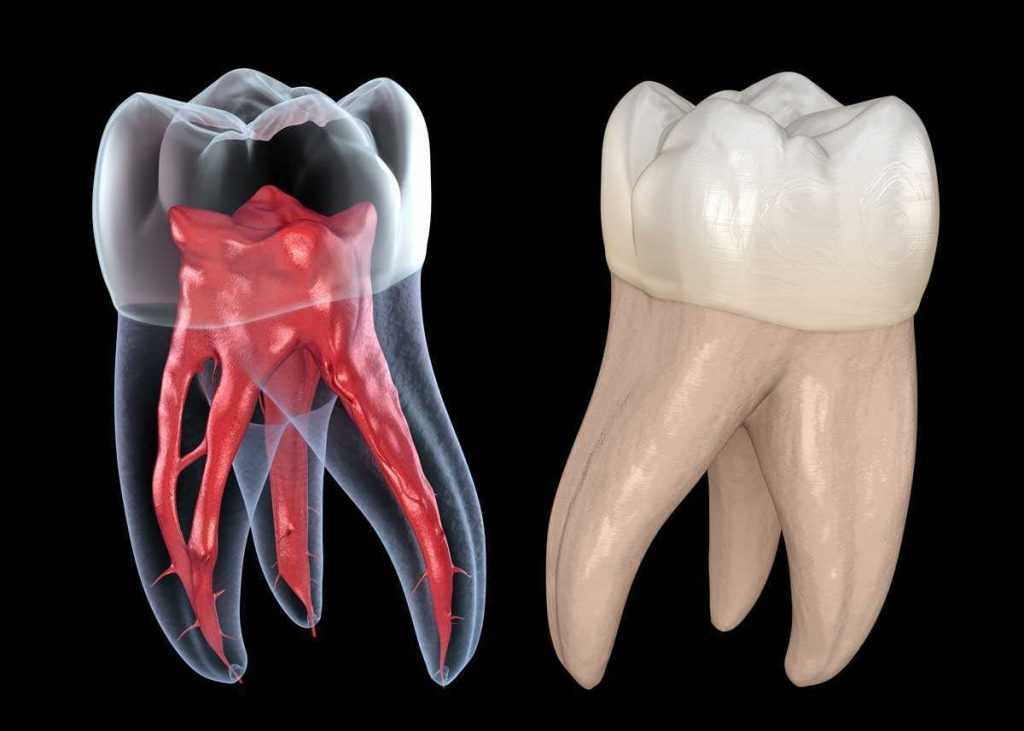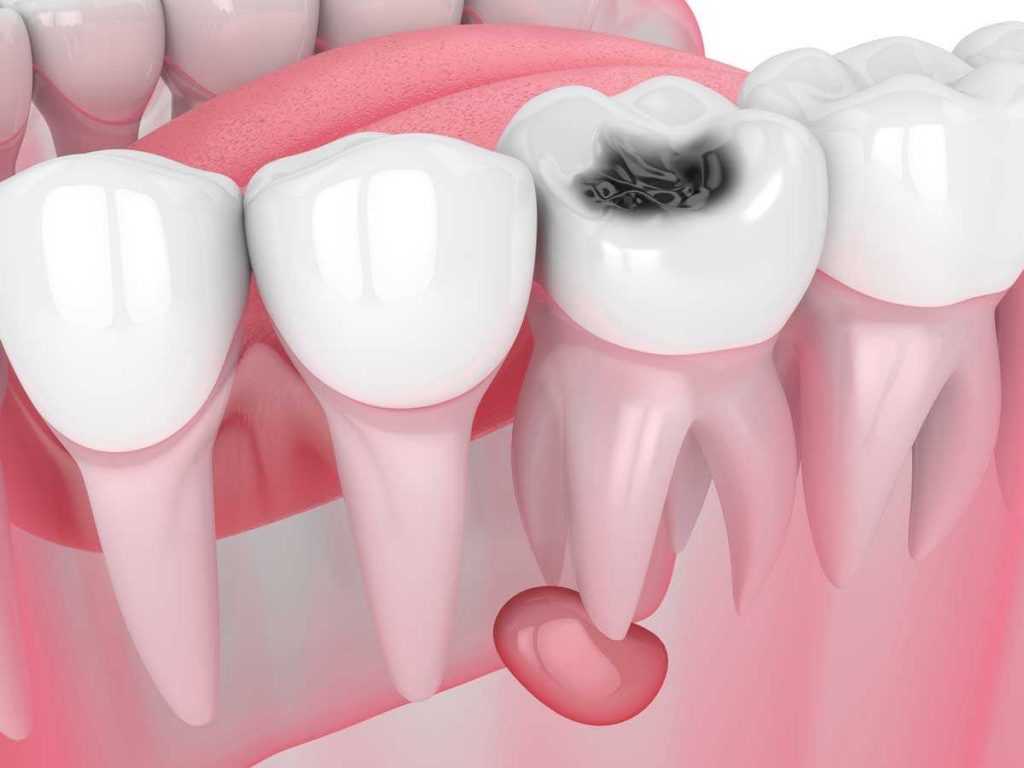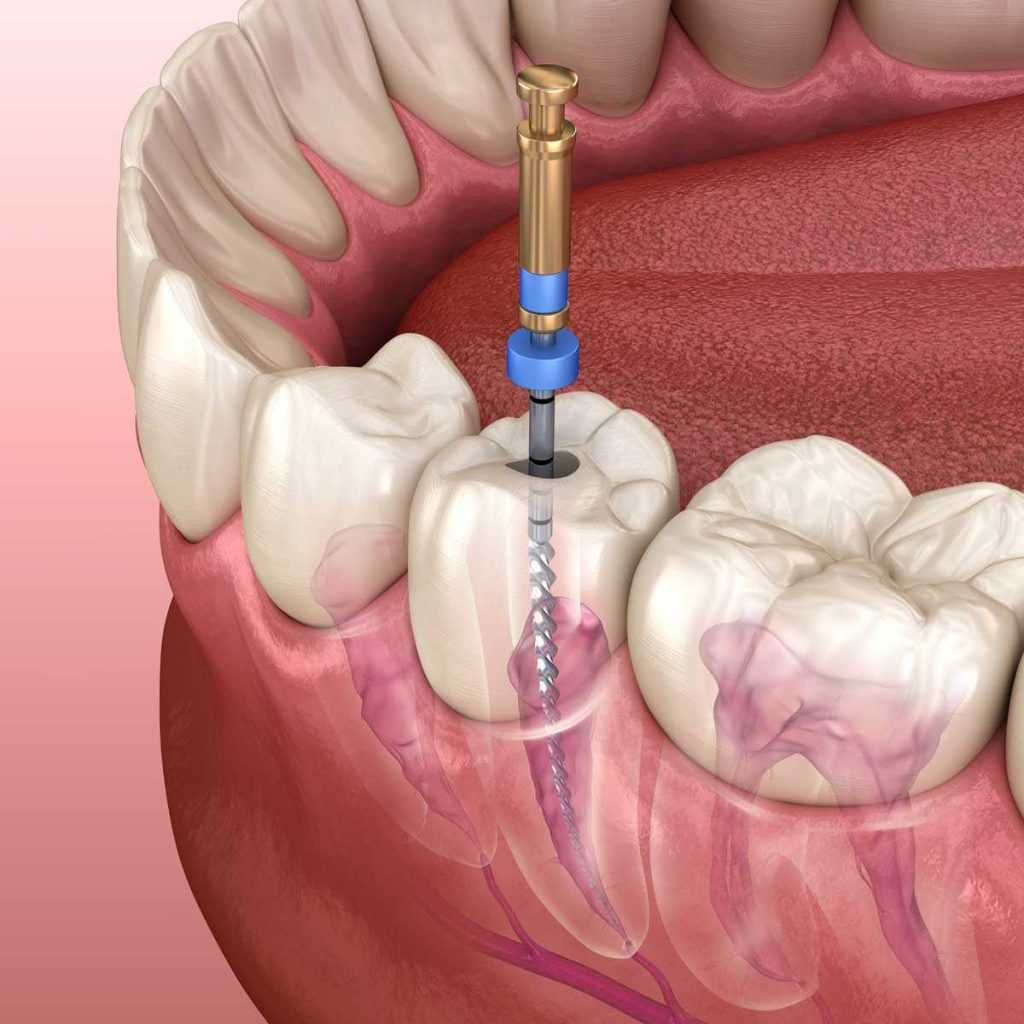Tooth and root canal treatment is a procedure used to save the tooth and avoid tooth extraction. It is called endodontics or endodontic therapy, whose purpose is to treat the interior of a tooth, the dental pulp. A healed tooth can serve us for many years.
What will you learn in this article?
In this article, read about the following topics:
What is endodontics and what it entails?
Endodontics is a branch of dentistry that deals with diagnosis and treatment of pathological processes which affect soft tissues of the tooth, the dental pulp.
Inflammation of the tooth
Inside the tooth and its root, there are many small vessels, connective and nerve fibres that nourish the tooth and transmit the sensation of pain and pressure.

The most common cause of inflammation of the pulp is caries. Caries starts at the enamel and, if left untreated, progresses deeper and damages the interior hard tissue of the tooth, the dentin, and then affects the soft tooth tissue or the pulp.
Our clinic combines half a century of tradition and quality with the highest aesthetic and health standards in dentistry.
Entrust the health and treatment of your teeth to us.
Have trust in us and contact us in case you need advice or have a question.
Get a professional check-up without leaving your home!
We offer a virtual dental examination. Learn more!
Untreated tooth decay leads to a series of pathological changes in the small dental space of the pulp, which ultimately results in its inflammation.
This slow process ultimately leads to pulp destruction . An endodontic treatment involves removing the dental pulp, cleaning and filling it with adequate biomaterial.
The inflammation may also spread to the surrounding bone tissue, leading to the formation of an abscess or granuloma. A granuloma is a purulent sac that forms in the said circumstances at the root apex.

A chronic inflammation, granuloma, can be diagnosed with certainty only on an X-ray, while the common clinical picture of acute inflammation is swelling and pain.
The most common symptoms of tooth inflammation are:
- Tooth sensitivity to heat and cold.
- Toothache, especially throbbing.
- Sensitivity or pain when biting.
- X-ray diagnosed granuloma.
- Swelling around the tooth and face.
Inflammation of the pulp can also be caused by unknown trauma and damage to the teeth, which, for example, occurred in childhood.
In such a case, the inflammation will develop slowly, even painlessly. However, there is still a pathological process underway that we have to deal with and save the tooth from decay.
If these conditions occur, it is necessary to carry out endodontic therapy or treatment of the tooth and root canal.
By treating the tooth, we prevent the spread of the infection and avoid tooth extraction.
Root canal treatment
Root canal treatment or endodontic therapy consists of:
- mechanical and chemical cleaning of the tooth from bacteria and by-products of decayed pulp,
- disinfection of the interior of the tooth,
- filling the empty interior with bioinert material,
- and reconstruction of the tooth crown.

Because this procedure removes the tissues that kept the tooth alive and nourished it, the tooth is devitalized. This means that the treated tooth no longer receives nutrients, stops regenerating itself and thus loses sensitivity.
Although a devitalized tooth becomes brittle due to all of the above and may crack over time, it still serves its function as well as a healthy tooth.
In order to prevent cracking of an endodontically treated tooth or root canal, the tooth needs to be protected by a dental crown or aesthetic filling.
Did you find out what you wanted to know?
In this article you have learned more about tooth and root canal treatment. You may want to learn more about the following topics:
Our clinic combines half a century of tradition and quality with the highest aesthetic and health standards in dentistry.
Entrust the health and treatment of your teeth to us.
Have trust in us and contact us in case you need advice or have a question.
Get a professional check-up without leaving your home!
We offer a virtual dental examination. Learn more!


